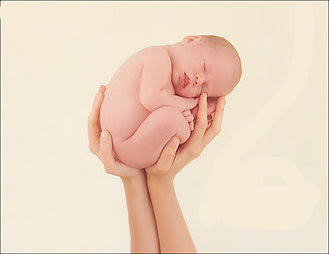
After having a successful vaginal birth after cesarean (VBAC) at her local hospital a few years ago, Joy Szabo was denied the option of having another VBAC at the very same hospital.
Due to an erroneous interpretation of ACOG guidelines, the hospital changed its policy on VBAC births, and no longer allows them.
"After they lost that fight, Szabo and her husband, Jeff, made an unusual decision. About three weeks before her due date, Szabo moved nearly six hours away from their home in Page, Arizona, to Phoenix to give birth at a hospital that does permit women to have VBACs.
"In the end, the Szabos got the birth they wanted. On December 5, their son Marcus Anthony was born in Phoenix via an uncomplicated vaginal delivery, weighing seven pounds and 13 ounces.
"'It was such an easy birth,' Szabo says. 'I was in the pains of labor for about four or five hours, then I pushed once, and he popped out.'
"The Szabos' story has a happy ending, but it shows that with the rising C-section rate -- now one in three babies is born via Caesarean -- women who want vaginal births sometimes have to fight to get them." (italics added)
What can women do to help ensure that they are given their rights? This article gives some good advice about asking questions, being specific and keeping open communication with your care givers:
I love this story, because it shows what we can do when we know our rights and insist on them. It also shows that hospital policy is not always what's best for mothers and babies. This woman avoided an unnecessary c-section, and even though it meant temporarily moving her family 6 hours away from their home, she got the birth she wanted. The local hospital refused to let her have a VBAC because of a policy change, even though she had already had a successful VBAC in that same hospital just a few years earlier. I think more women should know their rights, and I'm really glad this story is getting nationwide coverage.









